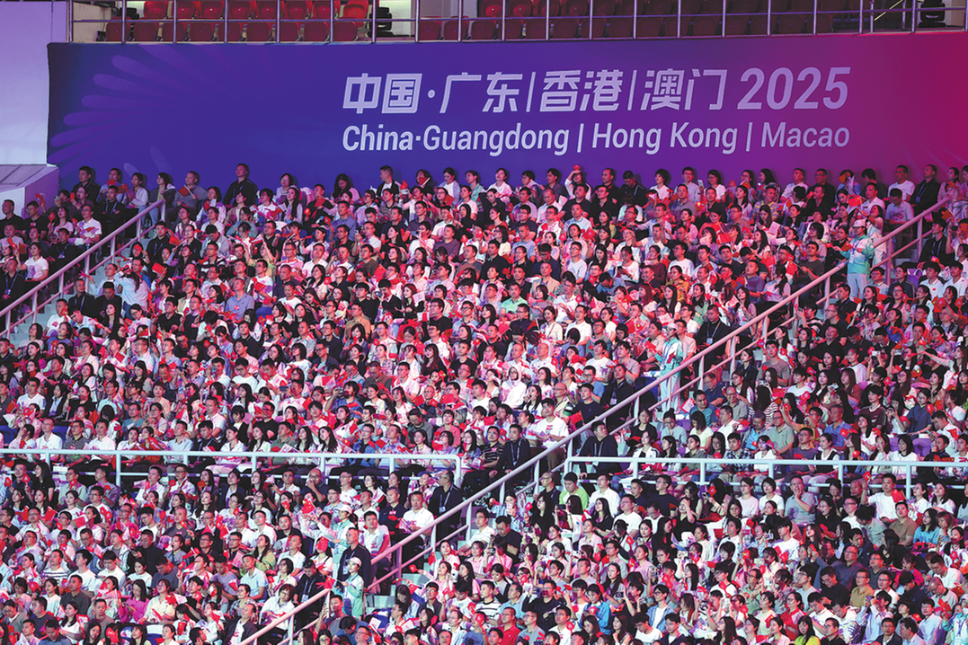US must respect China's core interests on Taiwan

The Taiwan question is at the core of China's core interests and the defining red line in China-United States relations. During Joe Biden's presidency, provocative incidents such as former House Speaker Nancy Pelosi's visit to Taiwan have heightened tensions.
President-elect Donald Trump is set to return to power on Jan 20. It is hoped that the provocative actions witnessed during his first term will not be repeated. In 2016, he broke diplomatic norms by taking a congratulatory call from then Taiwan leader Tsai Ing-wen, reportedly at the urging of anti-China hardliners within the Republican Party. His administration sold over $18 billion in arms to Taiwan, and signed legislation such as the Taiwan Travel Act, TAIPEI Act, and Taiwan Assurance Act, which deepened Washington-Taipei official ties and allowed cabinet-level visits to the island.
Ironically, the US president-elect doesn't genuinely value Taiwan, often mocking it as a mere tip of a Sharpie compared to the Chinese mainland's Resolute Desk. However, the Chinese mainland should always be prepared because Washington has been using Taiwan separatists as a pawn to counter Beijing.
Trump's past behavior and recent statements offer clues about how his Taiwan policy might unfold during a second term.
The first is economic demands on Taiwan. The US president-elect, after being sworn in, will likely press Taiwan for significant concessions in trade. Obsessed with tariffs and trade deficits, he previously accused Taiwan of unfair trade practices. Unlike Biden's more lenient US-Taiwan initiative on 21st century trade, Trump could demand a direct reduction in Taiwan's trade surplus with the US.
The second is semiconductor and supply chain pressure. Trump has repeatedly blamed Taiwan for "stealing" US semiconductor jobs, linking Taiwan's success to US' manufacturing decline. He may coerce Taiwan into relocating advanced semiconductor production to US soil while imposing strict restrictions on the island's exports to the mainland, all in the name of supply chain security.
The third is urging Taiwan to increase defense spending. Emphasizing his "America First" mantra, Trump has argued that US allies should pay more for their defense. He might push Taiwan to raise its defense budget from 2.4 percent of GDP to 3 percent or even 5 percent, primarily through expanded US arms purchases. These demands could favor traditional heavy weaponry over Taiwan's asymmetric warfare strategies, prioritizing US profits over Taiwan's defense needs.
The fourth may be heightened deterrence against Beijing, which the next US president should avoid. Republicans favor direct deterrence over coalition-building. Trump may use the island as leverage in negotiations with Beijing, potentially escalating US military deployments in the Indo-Pacific and increasing naval presence in the Taiwan Strait. This aggressive posture aims to bolster US deterrence but risks inflaming tensions further.
While Trump's views on Taiwan are often transactional, his policies could be heavily influenced by China hawks within his party. Figures like Mike Waltz, Marco Rubio, and Pete Hegseth, poised for senior roles in Trump's national security team, advocate for more extreme measures. It is crucial whether Trump could control those figures instead of being manipulated by them. Because coupled with a Republican-controlled Congress, the hawks could pressure Trump to deepen Washington-Taipei ties.
Ultimately, US policy on Taiwan is increasingly shaped by Beijing's actions. Beijing's strong countermeasures following Pelosi's visit have underscored the dangers of escalating tensions. During the recent meeting between the Chinese and US leaders in Lima, Peru, the Chinese president reiterated that the Taiwan question is the red line for China and emphasized that maintaining peace in the Taiwan Strait requires recognizing the separatist nature of Lai Ching-te and Taiwan's ruling Democratic Progressive Party.
For Trump, Taiwan is merely a tool for economic gains and the strategic containment of Beijing. This reality is not lost on Taiwan residents. The reliance of "Taiwan separatists" on US support to pursue independence is a futile gamble that will ultimately backfire.
The author is an associate researcher at the Institute of American Studies, Chinese Academy of Social Sciences.
The views don't necessarily represent those of China Daily.
Today's Top News
- China warns Japan against interference
- Nation's euro bond sale shows investors' confidence
- No soft landing for Tokyo's hard line
- Commerce minister urges US to increase areas of cooperation
- Strong demand for China's sovereign bonds signals global confidence
- Ministry urges Japan to 'maintain self-respect'






























